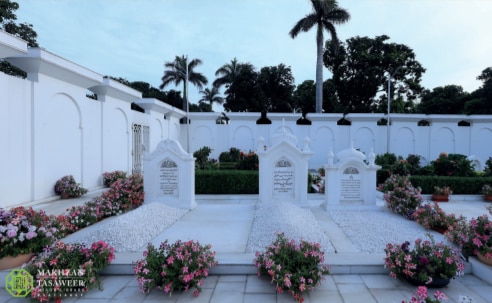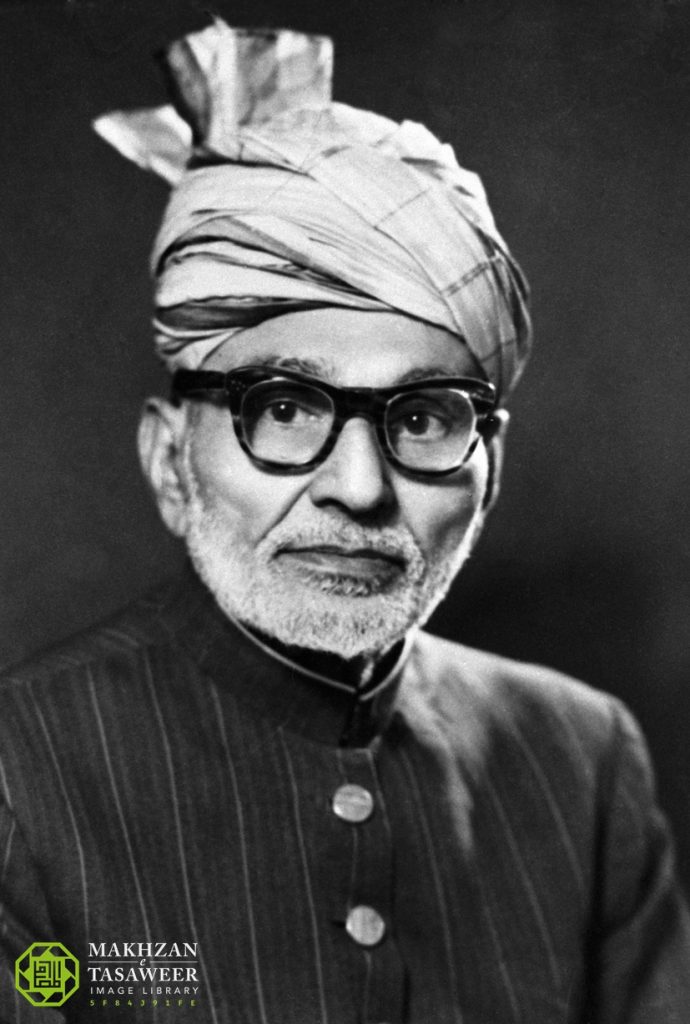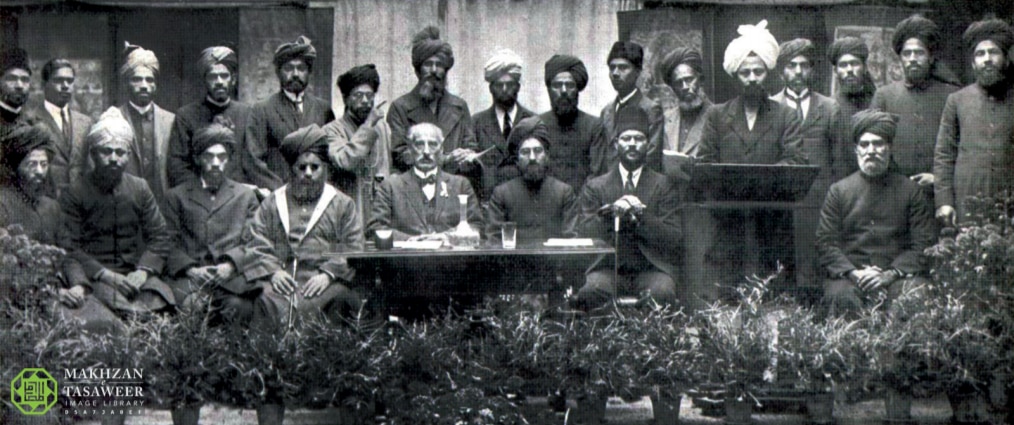17 September 1924: Hazrat Musleh-e-Maudra participated in a event held in London to protest the barbaric killing of Maulvi Nematullah Sahib in Kabul. According to the diary of Hazrat Bhai Abdur Rahman Qadianira, this event lasted for about two hours in which several hundred people participated. Hazrat Musleh-e-Maudra delivered an influential speech in English. Hearing this speech, some men and women were overcome with emotion. Apart from Huzoor’sra speech, other non-Ahmadi speakers also addressed the gathering. The Daily Telegraph and other newspapers published an account of the meeting.
17 September 1936: Hazrat Musleh-e-Maud’sra car was attacked by unknown assailants in Qadian. Huzoorra remained unhurt, by the grace of Allah.
The detail of this tragic accident is that Huzoorra was bidding farewell to his son, Hazrat Sahibzada Mirza Nasir Ahmadrh who was leaving for London. At the station at 7 o’clock in the evening, on the way back from the station, an opponent threw a stone at Huzoor’sra car, but by the grace of Allah, the stone only hit the roof of the car. (Tarikh-e-Ahmadiyyat, Vol. 7, p. 317)
17 September 1947: Hazrat Mirza Bashir Ahmadra went to the tomb of the Promised Messiahas in Bahishti Maqbarah and led a silent prayer for its protection with some companions of the Promised Messiahas. After the partition of the Indian subcontinent, there was very little security and the situation in the surrounding areas was intensifying by the day. During the prayer, this blessed group humbly and fervently prayed for the security of this sacred place. (Tarikh-e-Ahmadiyyat, Vol. 10, p. 160)
On 23 September 1947, Hazrat Mirza Bashir Ahmadra was called by Hazrat Musleh-e-Maudra from Qadian to Lahore as Hazrat Mirza Aziz Ahmadra was appointed amir-e-muqami back in Qadian after the partition. (Tarikh-e-Ahmadiyyat, Vol. 10, p. 162)

18 September 1961: Hazrat Nawab Muhammad Abdullah Khanra passed away after suffering from a long illness. He was the son-in-law of the Promised Messiahas. For further reading, please visit: Ahmadipedia.org

18 September 1975: Malik Fazal Hussain Sahib, passed away at the age of 75. Malik Sahib belonged to a family of Lahore. He was fortunate to join Ahmadiyyat at the tender age of 13-14. He migrated to Qadian after facing hardships from his parents for accepting the Messiah of the age.
For further reading, please visit: Ahmadipedia.org
19 September 1912: The Jamaat newspaper, Badr, started publishing the words of Khalifatul Masih Ira under the title, “Kalam-e-Amir”.
Kalam-e-Amir published Huzoor’sra dars of the Holy Quran, daily engagements, etc. Kalam-e-Amir is a treasure trove of insights and teachings which exhibits Huzoor’sra spiritual greatness and vast knowledge. (Tarikh-e-Ahmadiyyat, Vol. 3, p. 418)
19 September 1924: Hazrat Mir Nasir Nawabra passed away. He was the father-in-law of the Promised Messiahas.
For further reading, please visit: Ahmadipedia.org
20 September 1948: The new Markaz, Rabwah was inaugurated. According to the schedule, Hazrat Musleh-e-Maudra left Lahore by car at 9:20 in the morning and arrived in Rabwah at 13:20. Huzoorra was accompanied by Hazrat Mirza Bashir Ahmadra and various other members of the Jamaat. The Zuhr prayer was offered at around 1:30 pm with the participation of approximately 250 in congregation. This was the first congregational prayer that took place in this land, led by Hazrat Khalifatul Masih IIra.
Huzoorra then delivered a speech and led all members in silent prayer. (Tarikh-e-Ahmadiyyat, Vol. 11)

20 September 1975: At around 6 o’clock in the evening, Hazrat Khalifatul Masih IIIrh visited Richmond Park, London, which is located three or four miles from Fazl Mosque, and remained there for about half an hour. Huzoorrh returned to Fazl Mosque before Maghrib prayer.
21 September 1924: Hazrat Musleh-e-Maudra met with Colonel Montagu William Douglas – the judge who acquitted the Promised Messiahas from false charges of murder – during his England tour. (Tarikh-e-Ahmadiyyat, Vol. 4, p. 451)
In his diary of this journey, Hazrat Bhai Abdur Rahman Qadianira wrote, with regard to the background of the meeting and searching for Col Douglas:
“Our Chaudhry Muhammad Sharif Sahib is a very sociable man and a seemingly quiet, but really hardworking, man. He would regularly meet with officials returning from India.” In this way, he was able to track down and meet with Col Douglas.

21 September 1957: Dr Muhammad Rashidi, Ambassador of Indonesia to Pakistan, visited Rabwah and expressed his desire to meet Hazrat Musleh-e-Maudra, which was fulfilled. Before his return, on 23 September, he also attended a reception organised by the people of Rabwah. (Tarikh-e-Ahmadiyyat, Vol. 18, pp. 484 – 496)
22 September 1946: Hazrat Musleh-e-Maudra was making his way to Delhi, where he had many meetings with national political leaders to discuss and resolve crucial issues that were causing distress amongst the people of the time. Huzoorra remained there until 14 October.
The political atmosphere in the subcontinent at that time was one of despair for Muslims, in particular, and for the people of the country in general. In this difficult time, Allah the Almighty informed Hazrat Musleh-e-Maudra that God had associated the solution of the problem with him.
As soon as Huzoorra reached Delhi, a series of meetings began. Meetings were held with the following leaders:
Quaid-e-Azam Muhammad Ali Jinnah, Mohandas Karamchand Gandhi, Maulana Abul Kalam Azad, Nawab Sahib Bhopal, Khwaja Nazimuddin, Sardar Abdur Rab Sahib, Feroz Khan Noon, Nawab Sir Ahmad Hameed Khan, Pandit Jawaharlal Nehru, and many more. (Tarikh-e-Ahmadiyyat, Vol. 9, pp. 319-331)
23 September 1924: Hazrat Sir Chaudhry Zafrulla Khanra read out an article written by Hazrat Musleh-e-Maudra at the Wembley Conference. This essay was admired by many people who attended the event.
Remembering this day, Hazrat Sir Chaudhry Zafrulla Khanra, in his book, Tehdis-e-Nemat, writes:
“When the time came to read the address, the Imam leaned toward me to say in a most affectionate manner, ‘Do not worry, I will continue to pray for you.’
“Every seat in the hall was taken. A large number had to stand. The entire address was heard in eerie silence.” (Tehdis-e-Nemat, pp. 212-213)

